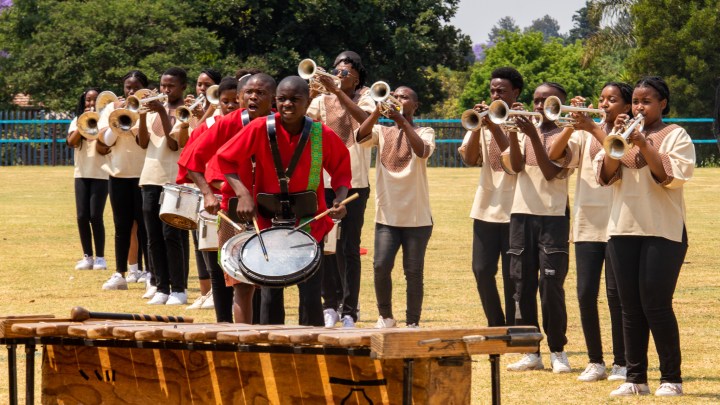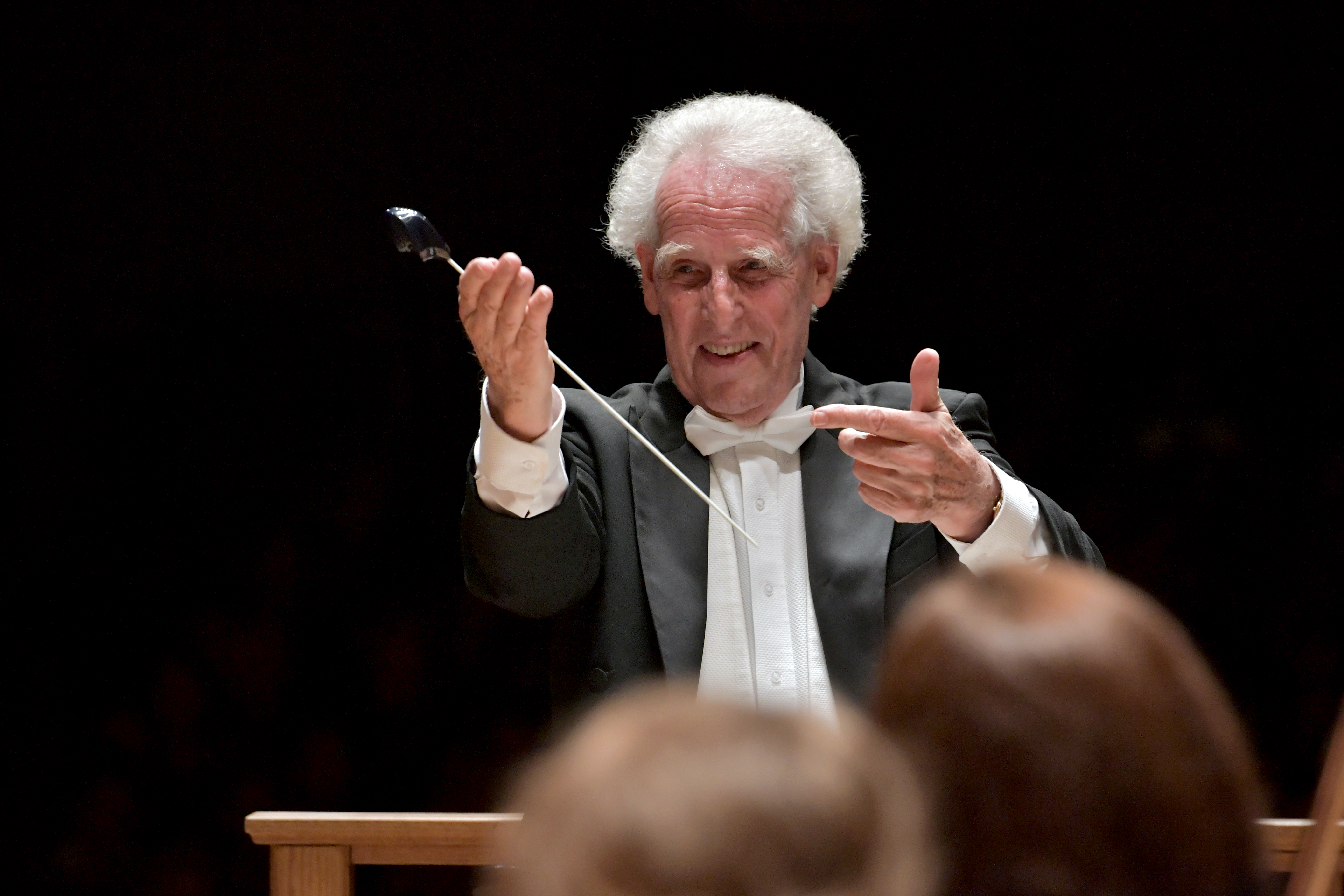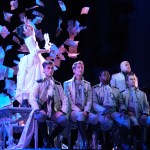MUSIC
Conductor and cellist Benjamin Zander fulfils promise to Mandela

This June, Benjamin Zander brings the 106-person Boston Philharmonic Youth Orchestra on a visit to South Africa where they will play to crowds in Soweto and Cape Town.
There’s a buzz of excitement in the city of Boston, Massachusetts. It’s been growing for months and it’s reached fever pitch. In less than one week, a group of young musicians will come to South Africa for their first visit: to meet, collaborate and perform with local instrumentalists and choristers.
Led by renowned conductor, cellist and leadership guru Benjamin Zander, their 106-person ensemble, the Boston Philharmonic Youth Orchestra (BPYO), will tackle two monumental works.
On his first trip to South Africa years ago, Zander fell in love with the country, the people and the way everybody seemed absorbed and fascinated by South Africa. “Every conversation, it seemed, was about the country, its future, its problems and the solutions.”
Zander met Nelson Mandela on that trip. He said to him: “It is a great honour to meet you, for you are the first leader of Symphonia.”
“Oh?” said Mandela. “What is that?”
Zander explained: “Sym-phonia: Sounding together. You didn’t lead one party against another. You listened to all the voices and conducted the whole ‘orchestra’.”
Madiba beamed from ear to ear. “I like that.” It was on that visit that Zander decided to bring his youth orchestra to South Africa. He wanted the members to have a chance to meet Mandela and mould their lives around his vision.
Sadly, it was not to be then, but in 2019 the team planned a visit by the youth orchestra, even though Mandela was no longer around. His legacy, however, was very much alive, and by then Zander had visited South Africa several times. On one trip he and his “partner in possibility” (his former wife, Rosamund Zander) hosted 96 different events where they challenged everyone they encountered to rethink the narratives that they told about their country. “We made a film during that trip, South Africa – Alive with Possibility, with an introduction by Archbishop Desmond Tutu.” In a case study made of that trip, the “Zander effect”, as it came to be known, was estimated to have directly affected more than 150,000 people.
At the last moment, the 2020 youth orchestra trip to South Africa had to be cancelled because of Covid-19. However, as soon as the Covid restrictions were lifted, it was not a hard decision to re-engage. Zander had told Mandela that he would bring the BPYO to the country. That promise is about to be fulfilled.

Benjamin Zander. Photograph: Paul Marotta

Zander’s BPYO in Boston. Images supplied courtesy of the Boston Philharmonic Youth Orchestra

Benjamin Zander’s BPYO in full flight. Images supplied courtesy of the Boston Philharmonic Youth Orchestra

A triumphant bow. Images supplied courtesy of the Boston Philharmonic Youth Orchestra
A few minutes before one of Zander’s presentations in South Africa in 2010, the organiser, Louise van Rhyn, asked him if he’d be willing to listen to a young singer. He wasn’t sure how he’d fit it into his presentation on the Art of Possibility, but since she and her pianist were ready to perform two arias from The Marriage of Figaro, he agreed. When the young singer finished her first aria, he turned to the 1,500 people in the room and said: “Mark my words: a major singer is about to ascend to the world’s stage.”
They worked together on the second aria; “at that moment the singer was standing right in front of the flip chart depicting a circle and arrows going out in all directions, representing Possibility. Her radiant smile, along with her gorgeous voice, created a moment that nobody in that room will ever forget,” says Zander. It was Pretty Yende, now one of the leading operatic sopranos in the world (who recently performed at King Charles’s coronation concert).
The proliferation of great South African solo singers is well known, but Zander has mostly worked with young local musicians, including with the Johannesburg Youth Symphony Orchestra when he came to receive the Absa Leadership Award early in 2019.
“We’re looking forward to six different events during the tour. The sparks are going to fly,” he says with a smile.
None of the 106 young musicians has been to South Africa. Many of them have not left the US before. Some have not left the state of Massachusetts. The youngest is 13, the oldest 21. “Of course, everyone is looking forward to going on safari at the end of the tour, but bringing Mahler’s Second Symphony to Johannesburg for the first time in 40 years is high on everybody’s list.”
For Zander, coming back to Cape Town to perform the Second Symphony in the same hall where he conducted Beethoven’s 9th with the Cape Town Philharmonic is a tremendous thrill. “Everyone is going to be astonished by this orchestra. However high the expectations are for the performance, those expectations will be surpassed. I cannot wait for the reaction of audiences throughout South Africa to the sound, the passion, the understanding, the musical sophistication and the virtuosity.
“It is my firm belief that human beings are designed to live in harmony with respect and love for each other. The BPYO is created with a mission: shaping future leaders through music. During the year we not only prepare and perform some of the greatest works of music, we also diligently train each member to be a fully expressed, responsible human being. We travel on a Tour of Possibility, based on the practices laid out in the Art of Possibility.
“Each week, the orchestra is given an assignment to guide them in their interactions and tasks. For the tour, they are given one overriding assignment: walk with spirit and love.”
For Zander, Beethoven’s 9th and Mahler’s 2nd (also known as the Resurrection Symphony) “penetrate into a realm that is beyond the musical. There are other great works with massive resources, but Beethoven 9 and Mahler 2 lead us on a journey from total despair to total glory in such a way that no person can resist their power and their effect.”
When the BPYO performed Mahler 2 a few weeks ago in Boston’s Symphony Hall, the audience rose to their feet as one and gave a roaring ovation that lasted 11 minutes. “There is no other work that can do that in quite that way. I believe the impact of these young musicians playing this massive, challenging and moving work will be overwhelming for everybody who attends the concert. I’m personally feeling a particular thrill at the prospect of performing this work for what is surely the first time in the Regina Mundi Church in Soweto with a massive choir of South Africans and two great South African soloists. We will then fly the soloists and chorus to Cape Town, so that music lovers can hear this work too.”
The beauty of classical music, he says, is that we don’t have to choose a favourite composer. Each composer, every work and every performance is now available at the mere flick of a switch. “All we need is a pair of really good headphones. I have collected many of my favourite works on my website with explanations and coaching so that even people without any experience with classical music can learn to understand these treasures and bring them into their lives. Many people have found that the most effective way of understanding these works is by watching the interpretation classes on my website.”
With places in the BPYO at a premium, the selection process is rigorous.
“We have a 12-minute audition: six minutes of playing and six minutes of interview. I’m looking for players with high accomplishment as instrumentalists as well as a deep feeling for music, curiosity and open-heartedness. Sometimes those qualities are hidden behind fear or shyness, but I can usually tell if they will be revealed when they join the orchestra.”
And the tour itself is a massive logistical operation. “Elisabeth Christensen, the managing director of the Boston Philharmonic, is the magician who makes it all happen. No one understands how she does it. She works together with the touring company called Classical Movements whose senior vice-president (Johan van Zyl) is a South African. We have several other adults including a doctor and eight chaperones, whose main role is to be sure we don’t leave anyone behind as we travel! We don’t need a counsellor because everybody is signed up for the Tour of Possibility. Intermittently, I hold meetings with the whole group to check in with the vision and practices which enable us to travel together harmoniously. All we have to do is to remind them why we have come on this trip and who we have to be in order for everyone to get the most out of the experience.”
It’s a demanding schedule. Says Zander. “We have to keep rehearsing so that each of our concerts is at the highest level. We have to allow time for each member to practise their instruments, but we must also allow them to see as much of what makes South Africa special, and to meet and interact with other young people. There is no doubt that the most unusual experience will be going out in a van at dawn and seeing wild animals roaming without restriction.
“I would say it is my privilege that I started life as a composer, continued as a cellist for the formative 15 years of my youth, and ended up as a conductor. The conductor doesn’t make a sound, but his role is huge: “To release the power in each player to awaken possibility in others, whether I’m conducting the Philharmonia of London, the Israel Philharmonic, my own Boston Philharmonic, or the BPYO.”
In addition to the concerts, they’re looking forward to their first-time collaborations: with the University of Pretoria Symphony Orchestra in Tshwane; on 16 June the BPYO will participate in Youth Day Celebrations and a street parade in Soweto with the Field Band Foundation and on 17 June, 30 BPYO musicians will meet and play with the Morris Isaacson Music Centre in Soweto. On 19 June in Cape Town they will play with more than 200 South African and American musicians playing together, from the BPYO and Settlers High School Orchestra, Bellville High School Symphonic Wind Band, DF Malan High School Wind Band, Fairbairn College, Westerford High School Symphony Orchestra, Sans Souci and Rustenburg girls high schools and Rondebosch.
He adds: “The way I measure success is not in the usual categories of wealth, fame and power, but only in shining eyes. There are going to be a lot of shining eyes in South Africa in June.” DM



















It was enormously rewarding to have worked with The Field Band Foundation for around 17 years of my life in a pro-bono relationship when I worked at Ogilvy Durban. An incredibly well run and ethical organisation, and there’s no coincidence that Mr Herman Mashabe was selfless in the massive roll he played as one of the key leaders and contributors in the development of this organisation. It’s great to see their continued involvement with global orchestras which all helps with youth development through music.
That’s great to hear.